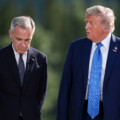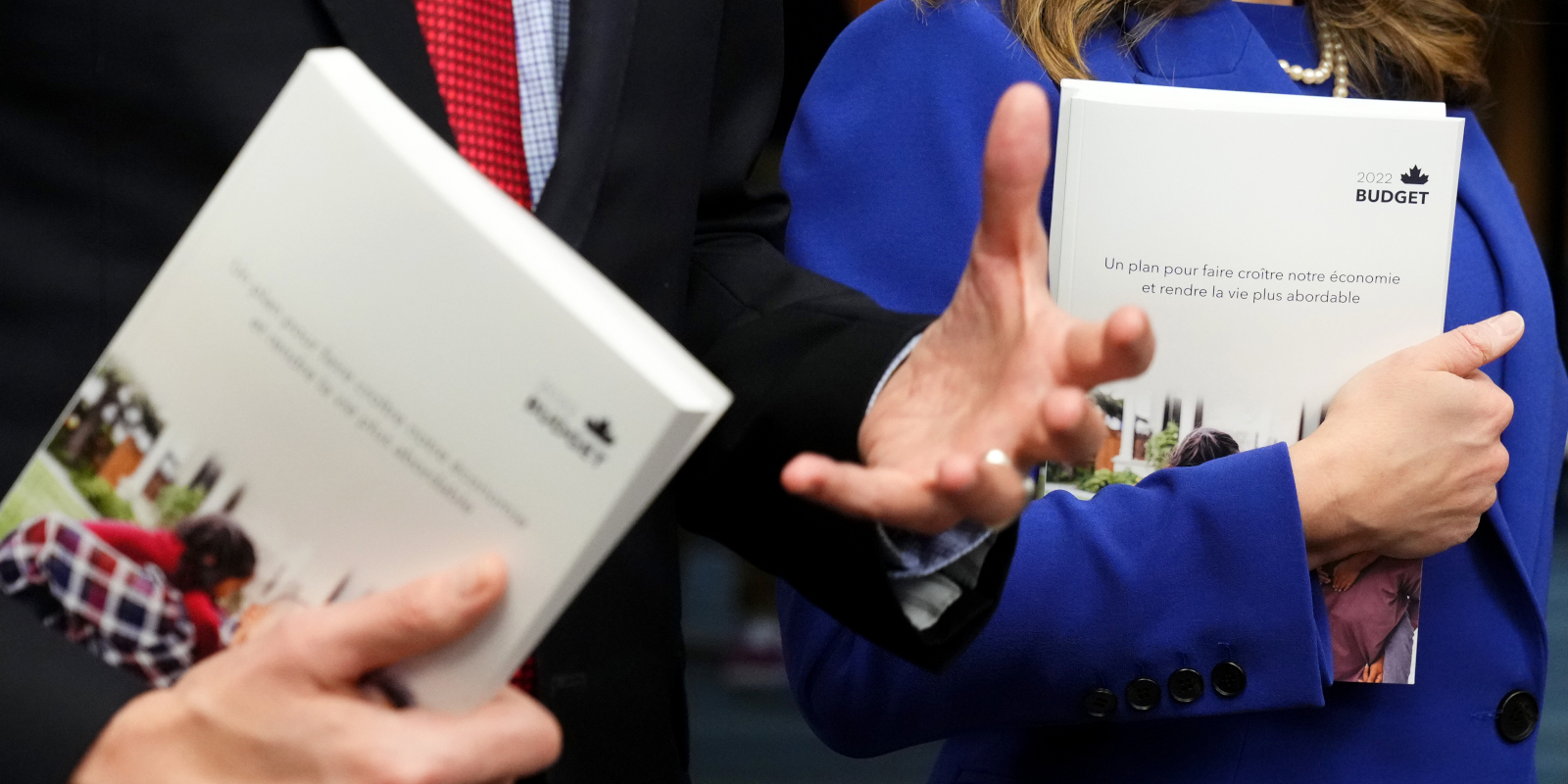Are Prime Minister Justin Trudeau’s Liberals turning back the clock on almost eight years of rising federal spending?
On November 3, Ottawa will release its fall economic statement, an annual update of revenue and spending projections in the near term, which is expected to contain notice of more restrained spending by the federal government going forward.
Finance Minister Chrystia Freeland is already reported to have told her cabinet colleagues that money for new programs will have to be partially offset by cuts to existing ones.
According to Statistics Canada, 2022 is projected to be just the second year that public spending as a share of GDP shrinks since the Liberals won the 2015 federal election. It is a departure for Trudeau’s government, which first came to power promising budget deficits to boost government spending.
“I don’t think they ever wanted to, or ever probably anticipated, the need to enter into some kind of real austerity agenda, and I’m not sure they will yet,” says Eugene Lang, a former chief of staff in the governments of Liberal Prime Ministers Jean Chretien and Paul Martin.
While the word “austerity” has been spread on social media to describe Freeland’s upcoming spending plans, the federal deficit was still projected to be $25.8 billion for the 2022-2023 fiscal year by the Parliamentary Budget Office last month.
During the COVID-19 pandemic, the federal government ran deficits of $327.7 billion in 2020-21 and $90.2 billion in 2021-22. These historic deficits were due to a combination of a big drop in revenues and a massive increase in program spending including emergency programs.
In a separate yet related development, the Bank of Canada has begun hiking interest rates to quell inflation brought about by, among other reasons, too many new Canadian dollars in the economy and too little supply of too many different goods. Rate hikes are expected to continue even if the Bank’s tighter monetary policy pushes Canada’s economy into a recession.
Philip Cross, a Senior Fellow at the Macdonald-Laurier Institute, believes that a constrained federal budget paired with Bank rate hikes will be no coincidence.
“All of that tells me that the Bank and the Department of Finance are in regular communication,” says Cross. “You want fiscal and monetary policy working together.”
The aftermath of U.K. Prime Minister Liz Truss’ own disastrous mini-budget, containing significant tax cuts without offsetting spending reductions, now looms over fiscal policy decisions in Canada and elsewhere. Truss’ expansionary mini-budget, which was projected to cause a surge in debt, caused bond markets to panic, resulting in an economic and political fallout that ultimately led to Truss losing her job.
The Bank of England was undergoing its own program of rate hikes to curb inflation in the U.K. at the time. Like the Bank of Canada, the Bank of England has kept raising rates as Rishi Sunak, Truss’ replacement as prime minister, has reversed the government’s mini-budget and promised greater fiscal restraint.
“I think there’s a big risk if you go up against monetary policy by increasing fiscal, and in a way that is clearly inflationary,” says Karyne Charbonneau, Executive Director of Economics at CIBC Capital Markets. “It’s really going to rattle the markets because you’re forcing the central bank to do even more, which is going to push the economy into a bigger, deeper hole.”
Charbonneau says fiscal policy by the federal government, and monetary policy by the central bank, have been responsibly aligned in Canada.

Prior to the pandemic beginning in February 2020, the Trudeau government ran a series of consecutive deficits including $17.8 billion in 2016-2017, $19 billion in 2017-2018, $14.0 billion in 2018-2019, and $39.4 billion in 2019-2020.
There are also no indications that the federal budget is expected to be balanced for several years, which is consistent with historical fiscal trends. A 2017 Fraser Institute study found that from 1867 to 2017, nearly 75 percent of all federal budgets passed in Canada had incurred deficits.
As for political economy dynamics at play around this week’s economic statement, Lang says sensitivity to private sector concerns has not been the Trudeau government’s speciality, despite its emergency measures to aid businesses during the pandemic, such as $40,000 interest-free loans.
“This is not their constituency, it’s not their brand. If you will, it’s not the terrain on which they feel comfortable,” says Lang.
Regarding lower federal spending, Lang says the massive budgets of the pandemic were unsustainable.
Lang also says fiscally-minded Liberals from the more austere Chretien and Martin governments, also known as Blue Liberals, are probably feeling some satisfaction at the likely budget reductions to help tame inflation.
Many of these Blue Liberals have expressed concerns about the economic risks of the Trudeau government spending too much borrowed money.
“It’s always great to have your biases confirmed with reality,” says Lang. “I’m sure there are lots of ‘I told you so’ going on.”
The fall economic statement will be unveiled on Thursday, November 3. `
Recommended for You

Michael Kaumeyer: Polite decline: Canada’s aversion to being our best is holding us back

The state of Canada’s economy halfway through 2025

Peter Menzies: It’s no wonder Canadians are tuning out the legacy media

‘It’s really important that we make mining fashionable again’: Ken Ash on why mining is essential to creating a happy and secure Canada




